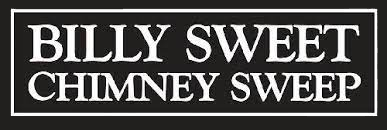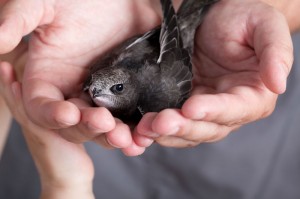Chimney Swifts
You may have heard chattering, fluttering, and other noises coming from your chimney and wondered, “Are there birds nesting up there?” Quite possibly, chimney swifts have taken over your chimney as their new home. According to the Driftwood Wildlife Association, chimney swifts are fascinating, adaptable birds who learned to nest and roost in chimneys when their native habitat of large hollow trees in forests of North America were cut down. However, if a family of chimney swifts does nest in your chimney, you should be aware that, according to the Humane Society of the United States, these birds are protected by the Migratory Bird Treaty Act, and removing or destroying nests with eggs or young can result in fines and penalties. Fortunately, the CSIA-certified technicians at Billy Sweet Chimney Sweeps are familiar with the regulations and habits concerning chimney swifts and can work with you on scheduling your annual chimney sweep around the life cycle of the chimney swift as well as fit your chimney with a customized chimney crown to keep the chimney swifts out, if you would rather not share your chimney with these birds.
Protecting These Birds
The Driftwood Wildlife Association formed a special project to promote the conservation of chimney swifts, and they provide valuable information to homeowners through a website, chimneyswifts.org, featuring articles like “Being a Good Chimney Swift Landlord.” With invaluable tips for those who do not mind sharing their chimney with these birds since they do only nest during the summer season, they recommend having your chimney swept in mid-March to have all of the creosote build-up removed, as this makes it impossible for the chimney swifts to build their nests to the walls without danger of falling. The birds make their return from South America after their wintering is over, and as they are migratory, they tend to return to the same nesting area. Like the Humane Society, this article stresses the importance of chimney swifts being protected by federal law and warns against chimney sweep businesses who illegally remove chimney swift nests and eggs. Be wary of companies who advertise “bird removal,” as this is a blatant violation of state and federal laws that protect migratory birds. Instead, choose a company like Billy Sweet Chimney Sweeps, who is active in promoting chimney swift conservation, to perform your annual chimney sweep.
Proper Removal of Their Nests
While the noises of the baby birds chirping for food can be shrill and annoying, they will not last forever. Just keep in mind that this is only temporary, and after that short period, you will rarely know the chimney swifts are there. However, be sure your damper is completely closed to keep them from flying into your house. The nests of these birds are small, cup-shaped constructions of small twigs glued to chimney walls by the birds’ saliva. Too small to be a fire hazard, you will still need to contact Billy Sweet Chimney Sweeps to remove the nest after they leave in the fall. This is needed to remove bird parasites, and since chimney swifts tend to return to the same nest, you do not want them to try to use the old nest as it will be unstable and probably collapse.
If you would like more information about chimney swifts, contact our knowledgeable staff at Billy Sweet Chimney Sweeps. We are happy to answer any questions you may have as well as schedule a chimney sweep for you or a consultation about chimney crown repair.

